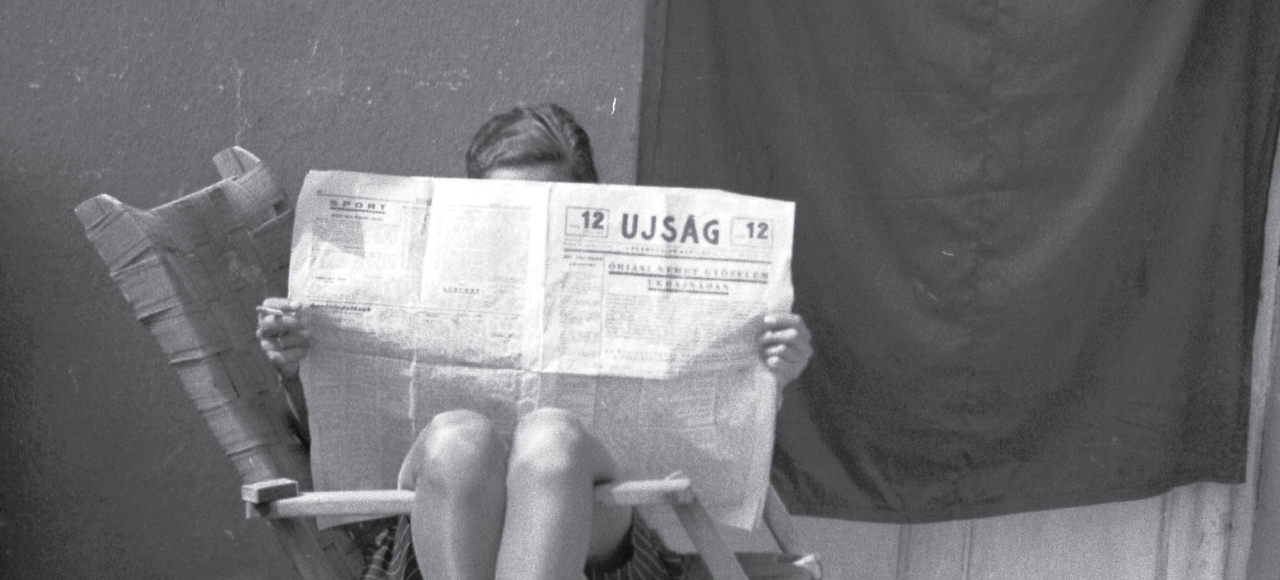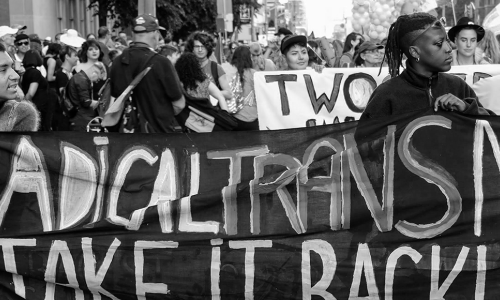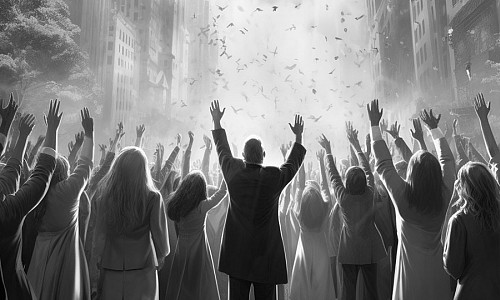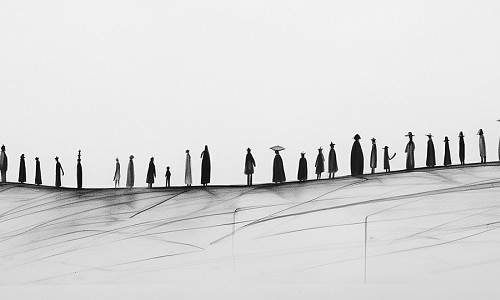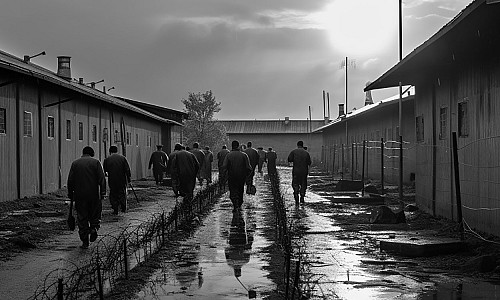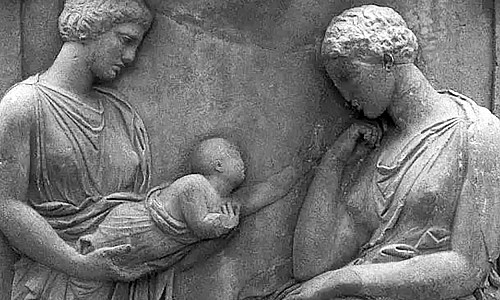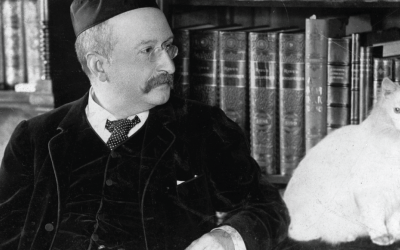Stella Sandford on why calls to diversify the curriculum sparked outrage in the papers
Philosophy and philosophers rarely make it into the mainstream news in the UK. But in January 2017 Plato and Kant hit the headlines. “They Kant be Serious! PC students demand white philosophers including Plato and Descartes be dropped from university syllabus”, shouted the MailOnline; “Newsnight guest DEFENDS calls to ban Plato and Kant because the Enlightenment is ‘racist’”, spluttered The Sunday Express. The Sun upped the ante by adding a few more names to the list: “Barmy SOAS students try to ban classical philosophers like Plato, Aristotle and Voltaire from their courses … because they are white”. These figures, along with the likes of Bertrand Russell are, according to The Mail (which The Telegraph’s Education Editor then apparently copied), among the “titans of philosophy” whose names “underpin civilisation”. On the day on which I looked at this The Sunday Express online article appears under a banner of sex videos including “Mila Kunis stripped bare …”, “Katherine Heigl stripped bare …” It isn’t stated whether this is the kind of “civilisation” which Kant et al underpin.
I’m sure others, like me, are surprised and delighted to see these newspapers professing such fulsome appreciation of the importance to contemporary Britain of Greek, French and German thought, and of the importance of philosophy in general. I’m also glad to see their support for the left-wing, anti-war, anti-nuclear, British philosopher Bertrand Russell. The consternation that the red tops, especially, have expressed at the very idea of university provision without the history of philosophy exceeds anything we have heard from any UK Vice-Chancellor in living memory. Let’s hope we can expect the newspapers’ full support the next time the value of the humanities is trashed by the likes of Michael Gove!
Although, it is a bit confusing that The Sunday Express also seemed to endorse Jacob Rees-Mogg’s Govish attack on “experts” last November. “There’s a great line from Cicero”, Rees-Mogg says, “about there’s nothing so absurd that it hasn’t been said by some philosopher, and I think suspicion of experts goes back into Antiquity, and it’s a very healthy thing to have. Experts, soothsayers, astrologists are all in my opinion in much the same category.” (Presumably Cicero isn’t any kind of expert.) So, it is good and healthy to attack experts, and philosophers are renowned for saying absurd things, but when students begin to question the philosophical status quo, the very foundations of Western civilisation look set to crumble.
In response to the students’ demands, calling them “ignorant”, Roger Scruton recommends that we investigate things before we make pronouncements on them. Unfortunately, he didn’t follow his own advice before accusing the students of wanting to “rule out a whole area of intellectual endeavour”. When we look at what the students said, in a statement outlining the Student Union’s educational priorities for 2016/17, we find no calls for a ban, no attempt to rule anything out. One of the students’ six educational priorities comes under the heading “Decolonising SOAS: Confronting the White Institution”. Of the seven aims under this heading it is the last two that have attracted most attention: “To make sure that the majority of the philosophers on our courses are from the Global South or its diaspora. SOAS’s focus is on Asia and Africa and therefore the foundations of its theories should be presented by Asian or African philosophers (or the diaspora) … If white philosophers are required, then to teach their work from a critical standpoint. For example, acknowledging the colonial context in which so called ‘Enlightenment’ philosophers wrote within.” [sic]
We can’t be sure that the journalists in The Express and The Mail thought much before writing their brief trash-talking pieces interpreting the aims as a ban on white thinkers. We can probably be sure, however, that their primary aim, at the behest of their masters, was the manufacture of outrage for the purposes of selling newspapers (or enticing people to the online version for the purposes of exposing them to the contents of the advertising space that had been sold there). However, philosophers, and especially those who devise syllabuses, probably should give a bit of thought to their own interpretations of the statement and will hopefully have different aims in doing so. They will also, hopefully, have maintained enough capacity for self-reflection not to presuppose that they have nothing to learn from the students.
Clearly, the students’ broad point is that their teachers pay too little attention to the growing criticism that syllabuses are unthinkingly “white” and that their teachers pay too little attention to the histories of colonialism and imperialism that underpin the work of the thinkers who “underpin civilisation”. I think the phrase “if white philosophers are required” is easily interpreted to mean that sometimes white philosophers will be required, but that often there will be other, perhaps more appropriate sources. It isn’t much of a stretch to acknowledge that, for example, ancient Chinese thought underpins Chinese civilisation, or that there might be Chinese economists who might be worth listening to on questions of global justice. It isn’t outlandish to imagine that Yoruba philosophers might currently have more to teach about aspects of Nigerian history and culture than does G.W.F. Hegel. It is the unthinking default mode of turning only to what is already known – European, overwhelmingly white thinkers – that the students want to criticise. Their sense that this is probably accompanied by unconscious bias against non-European (and often black) thinkers seems not unreasonable, given the swathes of research on this. In my view, the claim that has accompanied discussion of the statement, that the Enlightenment is racist, is an over-generalisation. But it is poor reasoning to think that disagreement on this point invalidates all other aspects of the students’ claims.
Of course, this isn’t just about SOAS. And it seems to me that teachers at SOAS, where the focus is on Asia and Africa, are going to find it a whole lot easier to diversify the curriculum than those of us who teach predominantly, or even exclusively, European philosophy. So what are we going to do? Clearly white philosophers are always going to be a large part of the study of the history of Western philosophy; indeed you can’t get away from the white guys in most academic disciplines as they are currently configured in the UK. The SOAS students recognise this, which is why they suggest (quite politely, after all) that we might like to consider teaching these white philosophers “from a critical standpoint”, which might include “acknowledging the colonial context” in which they wrote.
I honestly can’t see what is controversial about this. Doesn’t philosophy have something to do with critical thinking? Wasn’t Kant himself pretty keen on “the critical standpoint”. Wasn’t it Kant who wrote “Our age is the genuine age of criticism, to which everything must submit”? The Vice-Chancellor of Buckingham University, Sir Anthony Seldon, is quoted in the MailOnline as saying “There is a real danger political correctness is getting out of control. We need to understand the world as it was and not to rewrite history as some might like it to have been.” But I can’t see how “acknowledging the context” in which thinkers wrote is “rewriting history as some might like it to have been”; indeed, I think “acknowledging the context” is simply standard historical practice.
Of course, it is specifically the claims about colonial context that have got the right-wing press’s back up. This is particularly what irks Roger Scruton, too. “If they think there is a colonial context from which Kant’s Critique of Pure Reason arose,” he is quoted as saying, “I would like to hear it.” If he means by this the colonial context of Prussia and the rest of Europe at the time at which Kant wrote the Critique of Pure Reason, he could look at some of Kant’s political philosophy for some sense of that. It would not be difficult to find a decent history book that could fill in the detail. If, on the other hand, he means “tell me how the Critique of Pure Reason is a colonial text”, that would be a harder (but not necessarily impossible) task. It is not, for example, beyond the wit of intellectual historians and philosophers to reflect on the question: what is the relationship between the ideas that we find in the Critique of Pure Reason and Kant’s philosophical essays on race, in which are expressed precisely those racist views that justified European colonialism and its part in the slave trade? If there is, as many Kant scholars believe, any unity to Kant’s philosophy, then this question is quite basic. Kant and his followers developed an allegedly wholly rational conception of the history of philosophy which – quite in contrast to all previous histories of philosophy – excluded African and Asian thought. (Peter Park’s work on this is extremely convincing.) That this was developed in the historical context of European colonialism is uncontroversial. So, yes, it seems that there is indeed some relationship between Kant’s thought and “a colonial context” and there is no a priori reason why the Critique of Pure Reason should be excluded from this. Only Daily Mail and Daily Express journalists looking for a cheap column-filler would interpret this as a call to drop Kant from the syllabus.
Much of the coverage of the SOAS students’ demands is an unedifying combination of 1980s “loony Left” bashing and Trumpism, especially the latter’s Alice in Wonderland tendency to turn things into their opposite. The Sun calls the students “snowflakes” and constructs them as the ones who want to “ban” things. Anthony Seldon sails dangerously close to accusing the students, quite unfairly, of wanting to construct alternative truths. But if we are faced with a choice between generous listening to critically engaged students or repetition of tabloid Trumpism, I know which side I want to be on.
Stella Sandford is professor of modern European philosophy at Kingston University
You might also like...


